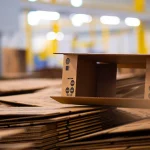China seeks to “expand cooperation” with Portugal with green transition on the agenda
China’s foreign minister, Wang Yi said on Tuesday that Portugal and China should expand cooperation and strengthen bi-lateral relations and exchanges.
Speaking to the Portuguese Minister of Foreign Affairs, Paul Rangel, who was in Beijing this week on a four-day visit, including a stop-off in Portugal’s former dependency Macau, he met with other high representatives within the Chinese government.
Wang Yi stressed that Beijing is ready to “work with Portugal to build a more stable, fruitful and dynamic relationship”.
A decade or more ago, commercial investment relations between the two countries during the PS government of José Sócrates and the PSD-CDS-PP coalition government of Pedro Passos Coelho were strong with several big ticket investments from Chinese public and private companies in areas such as energy (China Three Gorges’ stake in EDP); insurance (Chinese company Fosun’s investment in Fidelidade; banking (Haitong Bank Portugal is held by Haitong Securities Co.Ltd) and Bison Bank (Formerly Banif, it is now owned by Bison Capital Financial Holdings (Hong Kong) Limited, incorporated in Hong Kong;, automotive batteries (China Aviation Lithium Battery Technology (CALB); Beijing Enterprises Water Group (bought utility Veolia – Be Water), to name a few.
However, Portugal’s former Minister of Foreign Affairs, Augusto Santos Silva was given an indirect broadside during the first PS socialist government led by António Costa (2015-2023) suggesting that Portugal needed to chose its commercial friends carefully by the then US ambassador George E. Glass (2017-2021) if it wanted to enjoy a successful trade relationship with the US, after Portugal considered allowing Chinese telecoms giant Huawei to help it develop its 5G network.
With the US making economic life more difficult over tariffs and stating that European countries were “freeloaders” and “PATHETIC” in an unfortunate WhatsApp exchange this week, several European countries are looking to find easier alternative markets in China to bridge the gap, a move that China is eager to capitalise on as divisions between the EU and US widen.
China’s foreign minister and its foreign ministry detailed areas in which Beijing could have a closer relationship: investment, green transition, the digital economy, innovation, IT and communications, being the main areas.
Wang Yi also stressed the importance of continuing to promote Macau as a platform between China and the Portuguese-speaking countries.
The Chinese ministry of Foreign Affairs referred to the “good tradition of respect and mutual support that existed between Portugal and China, with the two sides “resolving the question of Macau with political wisdom, setting a good example on how to resolve historic issues through friendly exchanges”.
Paulo Rangel’s visit involved a lecture to university students on the Portuguese language and culture (Beijing Foreign Studies University), attending the conference Boao Forum for Asia 2025 in Haikou, a meeting with the General Director of the Chinese Communist Party, Minister Liu Jinchao in Beijing, and a meeting with the Dean of Beijing Foreign Studies University, Jia WenJian, as well as a meeting with China’s Deputy Prime Minister, Ding XueXiang.
China’s Foreign Minister Wang Yi – Photo: EPA/JESSICA LEE / POOL
Copyright: © 2025 LUSA – Agência de Notícias de Portugal, S.A.










